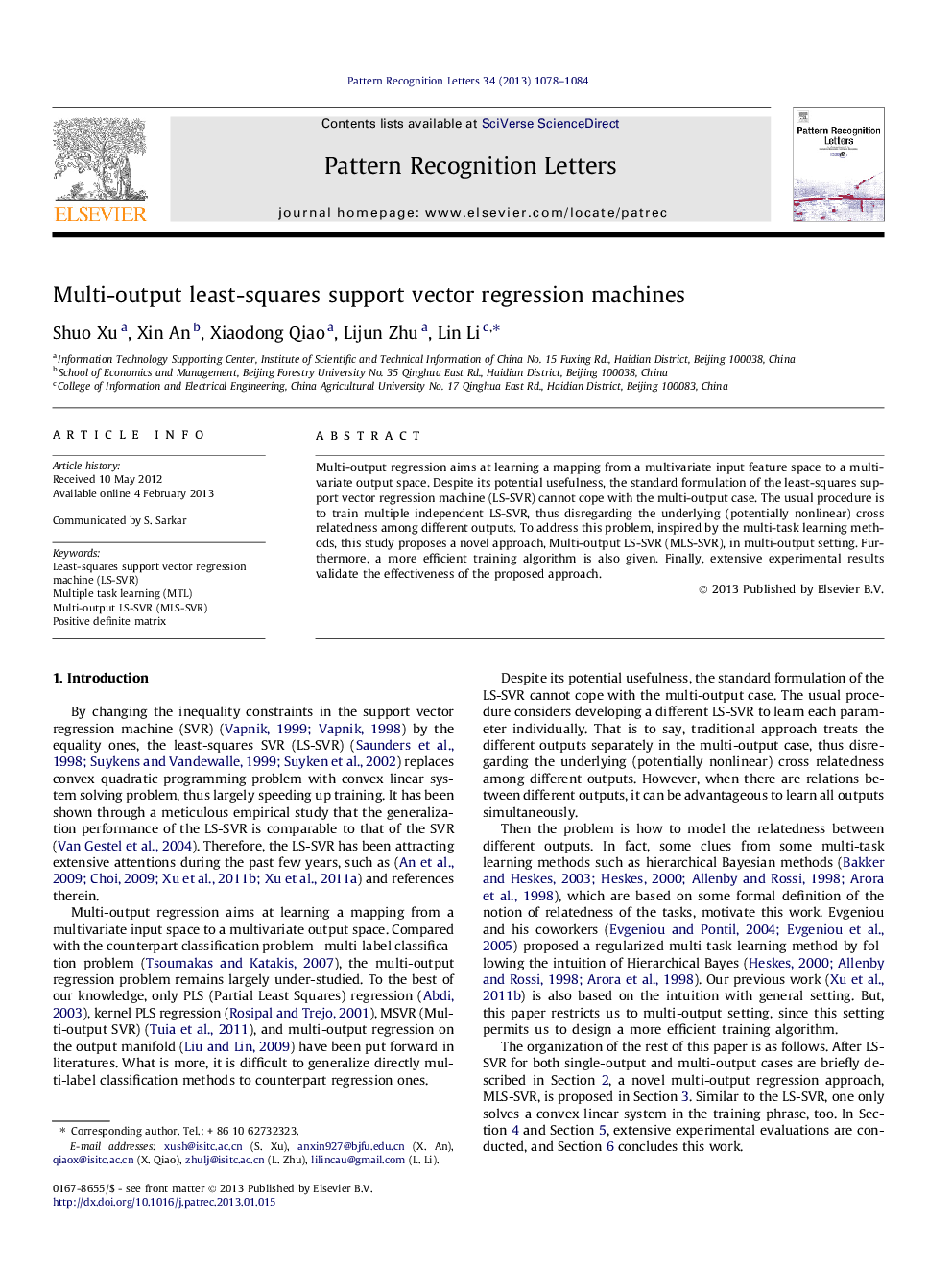| Article ID | Journal | Published Year | Pages | File Type |
|---|---|---|---|---|
| 534603 | Pattern Recognition Letters | 2013 | 7 Pages |
Multi-output regression aims at learning a mapping from a multivariate input feature space to a multivariate output space. Despite its potential usefulness, the standard formulation of the least-squares support vector regression machine (LS-SVR) cannot cope with the multi-output case. The usual procedure is to train multiple independent LS-SVR, thus disregarding the underlying (potentially nonlinear) cross relatedness among different outputs. To address this problem, inspired by the multi-task learning methods, this study proposes a novel approach, Multi-output LS-SVR (MLS-SVR), in multi-output setting. Furthermore, a more efficient training algorithm is also given. Finally, extensive experimental results validate the effectiveness of the proposed approach.
► We propose a novel multi-output regression approach, Multi-output LS-SVR (MLS-SVR). ► This approach considers the underlying (potentially nonlinear) cross relatedness among different outputs. ► A more efficient training algorithm is also given. ► The experimental results on corn and polymer data sets validate the effectiveness of the proposed approach.
